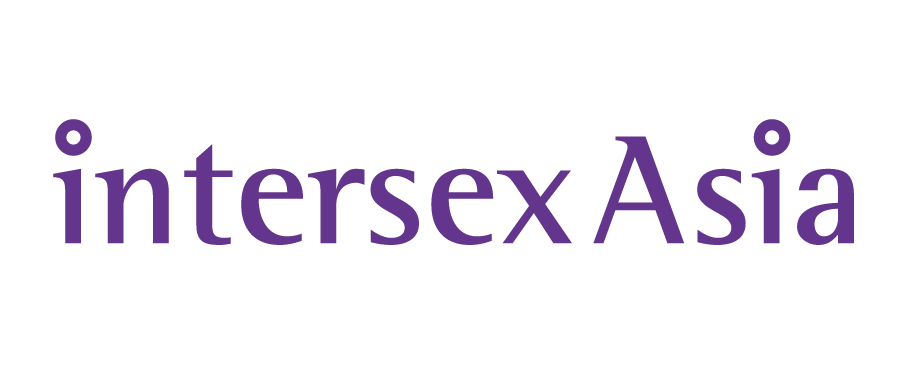The Speech delivered by Intersex Asia at the Policy Briefing Meeting in Tamil Nadu, India, Calling for an Intersex Inclusive G.O.

Policy Briefing Meeting in Tamil Nadu, India (2019)
(Madurai, 5 July 2019)
Hello/Goodevening/Namaste
Respected Chief Guests,
Members of representatives from different organizations, and
My dear friend and the founder of Srishti Madurai Gopi Shankar,
Today I am honored to be part of this meeting representing Intersex Asia. As you know the intersex community is still not given formal recognition, and we are still struggling to raise the awareness about intersex people in Asia as well as around the world. I am here today to share with you the story of Intersex Asia, how we work to ensure that the rights to life, bodily integrity, physical autonomy, and self-determination promoted and protected in Asia.
Most people in Asia and around the world are still not aware that, due to the complications in the biological development it is very difficult, even not impossible, for intersex people to identify within the given gender binary system. The inconsistency in their assigned gender at birth and the gender identity they identify with later in their life creates problems to gain access to different opportunities along with the ability to lead a normal social life. Intersex people are often stigmatized and discriminated by society hindering the process of their normal growth and development. Moreover, the complexity of intersex definition, the context, and the problems facing by the intersex community make it challenging for everyone to understand and to address the issues.
Many intersex adults exposed to such surgery as children emphasize the shame and stigma linked to attempts to erase their intersex traits, as well as significant physical and mental suffering, including as a result of extensive and painful scarring. Many also feel that they were forced into sex and gender categories that do not fit them. Given their irreversible nature and impact on physical integrity and autonomy, such medically unnecessary, unsolicited surgery or treatment should be prohibited. Intersex children and their families should receive adequate counseling and support, including from peers.
Because their bodies are seen as different, intersex children and adults are often stigmatized and subjected to multiple human rights violations, including violations of their rights to health and physical integrity, to be free from torture and ill-treatment, and to equality and non-discrimination. Due to the lack of evidence and statistical data, the community itself has not been able to advocate for their rights. There is a huge gap even within the Sexual and Gender Minorities and within the intersex community; Intersex people and their issues are not provided with projects, budget support or programs. There is a strong need for an issue-based specific program that would target supporting intersex individuals and strengthening them.
In 2013, Australia adopted the Sex Discrimination Amendment (Sexual Orientation, Gender Identity, and Intersex Status) Act – the first law to include intersex status as a stand-alone prohibited ground of discrimination. The Australian Senate has also carried out an official inquiry into the involuntary or coerced sterilization of intersex people. Likewise, in 2015, Malta adopted the Gender Identity, Gender Expression, and Sex Characteristics Act – the first law to prohibit surgery and treatment on the sex characteristics of minors without informed consent. It also prohibits discrimination on the basis of sex characteristics. This has created positive vibes for the right of the intersex community all over the world.
As the co-chair of Intersex Asia and an intersex person, I am thrilled to highlight that the state of Tamil Nadu, India, has passed a ban on nonconsensual surgeries on intersex infants and minors which is an extremely impactful human rights gain for the intersex population, saving enormous numbers of intersex babies and future adults from the human rights violation of forced infant sex reassignment surgeries. I am sure it would have a positive impact against oppression, marginalization, and daily inequality of the intersex community, and create a huge impact on the general population as a whole, not only in India but across Asia.
I wish the message of this program will reach out to more people in and out of this workshop, and be giving support, care and understanding to the needs of the Intersex community in India. I am sure it will help to understand the issues of intersex people in India, their situation, their fear, and the challenge of disclosing their intersex status to family and society. Besides, we are sure that the program is expected to create enormous changes in people from different sectors. The distinguished guests’ presence in the program will have their solidarity to support the intersex community in India for implementation
Intersex Asia would like to thank the state of Tamil Nadu for bringing out the changes which are the most necessary for the right of intersex people. Lastly, I would like to thank Gopi Shankar’s endless efforts in the past 8 years for promoting intersex human rights in India. We are proud to have Gopi on our board, this critical step will shine the light for intersex human rights in Asia. Intersex Asia is honored to support this remarkable progress and landmark of intersex human rights in India promoting by grassroots intersex activist and all of you distinguished guest here.
Thank you!
Esan Regmi
Co-chair of Intersex Asia


